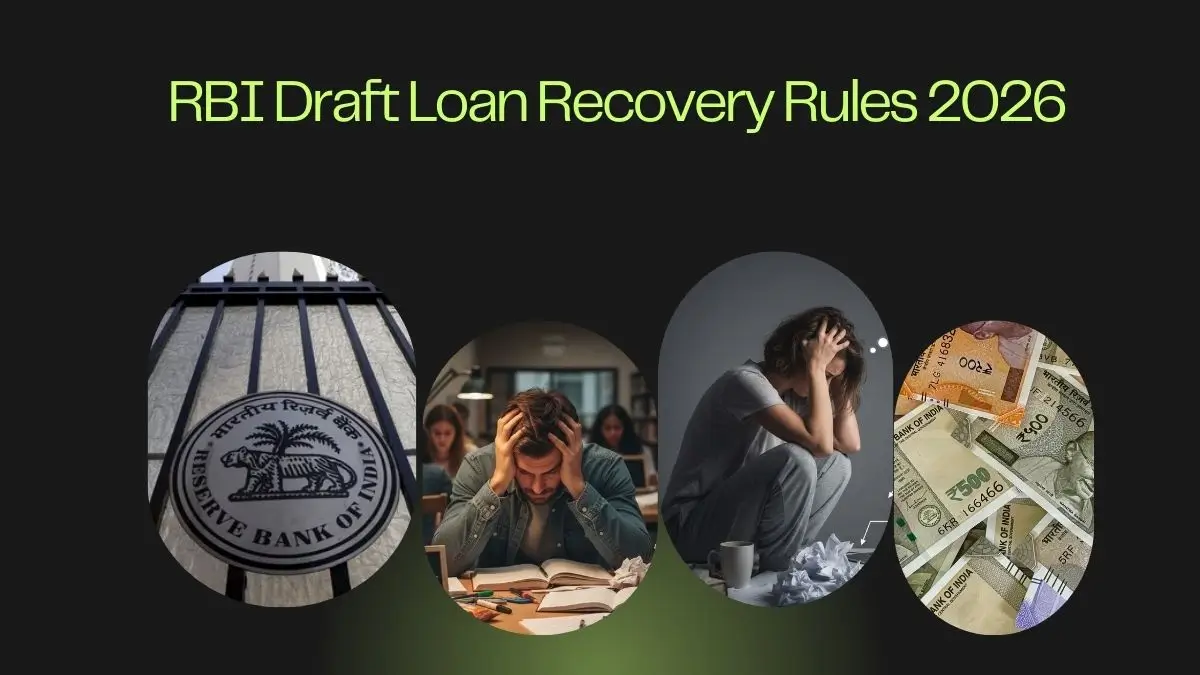Caution Flags Raised by CAFRAL on NBFC and Digital Lending Practices
In the ever-evolving landscape of finance, concerns over Non-Banking Financial Companies (NBFCs) and digital lending practices have been thrust into the spotlight. The Centre for Advanced Financial Research and Learning (CAFRAL) recently sounded alarm bells, emphasizing the need for regulatory scrutiny in these domains. Examining the intricacies, it becomes evident that these concerns are not only relevant for finance enthusiasts but also bear significant weight for aspirants eyeing various government positions, including teachers, police officers, bankers, railway professionals, and those in the defense and civil services.

Why this News is Important:
Unveiling the Risks in Financial Sectors: The implications of CAFRAL’s apprehensions extend far beyond financial circles. For government exam aspirants, this news is vital as it sheds light on potential questions that might be asked in examinations related to economic affairs, banking, and financial management.
The Need for Informed Policymakers: Aspirants targeting civil services, particularly positions like PSCS to IAS, must recognize the broader ramifications of lax regulations in the financial sector. Understanding these nuances is crucial for those aiming to contribute effectively to policymaking and governance.
Historical Context:
The Evolution of NBFCs and Digital Lending: To grasp the significance of CAFRAL’s concerns, a brief historical context is imperative. Over the past few decades, NBFCs and digital lending platforms have witnessed a meteoric rise, becoming integral players in the financial ecosystem. However, with this ascent came the need for robust regulatory frameworks to safeguard the interests of both consumers and the financial system at large.
Regulatory Responses in the Past: Historically, regulators have responded to challenges posed by these entities by refining and reinforcing guidelines. Understanding these historical interventions is vital for aspirants, providing a nuanced perspective on how regulatory bodies adapt to the dynamic nature of financial services.
Key Takeaways from CAFRAL’s Concerns on NBFC and Digital Lending Practices
| Serial Number | Key Takeaway |
|---|---|
| 1. | Increasing Instances of Unregulated Digital Lending Practices |
| 2. | Risks Posed to Consumer Interests and Financial Stability |
| 3. | Urgent Need for Stringent Regulatory Measures |
| 4. | Implications for Policymakers and Government Officers |
| 5. | Relevance for Banking Professionals and Law Enforcement Officers |
Important FAQs for Students from this News
Q1: Why are NBFCs and digital lending practices in the spotlight?
A1: The Centre for Advanced Financial Research and Learning (CAFRAL) has raised concerns about potential risks and challenges associated with NBFCs and digital lending, prompting increased scrutiny.
Q2: How does this news impact government exam aspirants?
A2: Aspirants preparing for various government positions, including teachers, police officers, bankers, and civil services, should be aware of the implications for their respective exams, particularly in economic affairs, banking, and financial management.
Q3: What historical context is provided in the article?
A3: The historical context outlines the evolution of NBFCs and digital lending, highlighting regulatory responses and interventions over the years.
Q4: What are the key takeaways from CAFRAL’s concerns?
A4: The key takeaways include insights into unregulated digital lending practices, risks to consumers and financial stability, the need for stringent regulatory measures, and implications for policymakers, government officers, and professionals in the banking and law enforcement sectors.
Q5: How can aspirants use this information for exam preparation?
A5: Aspirants should focus on understanding the specific challenges outlined in the key takeaways, connecting historical context to current concerns, and recognizing the broader impact on their chosen fields of study.
Some Important Current Affairs Links

















